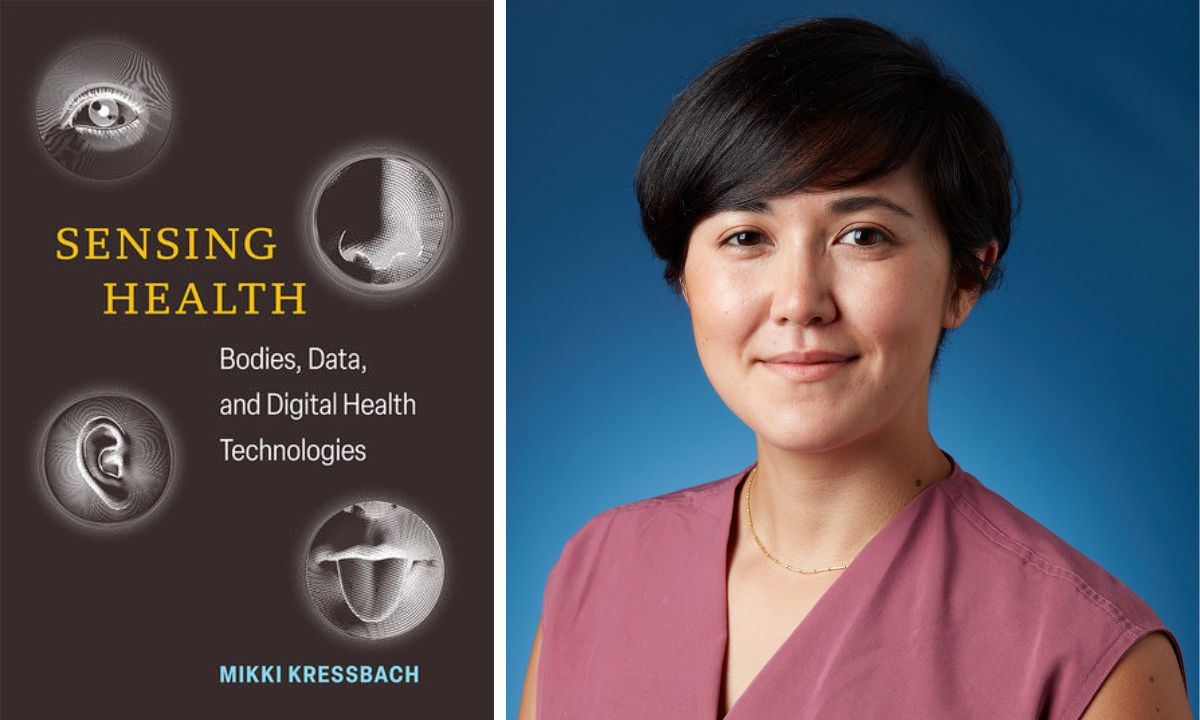
An estimated 219.43 million people use smartwatches worldwide. Professor Mikki Kressbach is one of them. In her book “Sensing Health,” she describes getting an alert on her Apple Watch that encourages her to move to meet her daily activity goal. She feels her body tense. The vibrating message, sold as a coaching feature by Apple, is meant to prompt a reaction – a brisk 12-minute walk, it suggests – but she reflects on her body and decides she doesn’t need to burn 16 more calories; she stretches to release the stress and lays back down.
Digital health technologies, like the smartwatch for example, claim to improve and promote wellbeing in customers. They track a user’s personal data and provide statistics and suggestions to maintain and improve health. “But where do these definitions of health come from, and how can they affect an individual’s perception of their body, health, and behaviors?” Kressbach asks. Her book sets out to answer this question.
Across five chapters, Kressbach examines menstrual trackers, sexual wellness technologies, fitness trackers, meditation and breathing technologies, and posture and running wearables. Scholarship criticizes how these technologies reinforce a reductive understanding of health that leans on quantifiable measurements that promote self-surveillance and optimization and disregards how factors like socioeconomics and genetics shape health. Kressbach goes further to explore the tension found between technologies and bodies through a combination of descriptive practices from Film and Media Studies and phenomenology, a philosophical practice that focuses on first person descriptions.
“I approach digital health as scholars approach film and other moving-image media: as aesthetic experiences generated through a combination of formal properties, viewing conditions, and embodied sensations,” Kressbach says. “These devices and platforms continually prompt individuals to reflect on the body and their movements through the world. I examine whether that reflection or reflexive encounter encourages objectification, self-alienation, or neoliberal subjugation.”
For Kressbach, aesthetic experiences, like the one she had when she was prompted to burn 16 more calories, remind you that you have a body, even if that body is at odds with the quantified measures of the device. In her Film, TV, and Media Studies class, Science, Medicine, and Digital Media (FTVS 3230-02), Kressbach stresses media literacy as a key component to navigating a technologically saturated world. Before using FitBits, students research the app and read through its privacy policy. They learn how data is sold and used by corporations to ultimately retarget and sell more things. They are trained in phenomenology, and they analyze their own digital health experiences through various theoretical lens such as neoliberalism, biomedicalization, and healthism. Many student experiences are represented in “Sensing Health.”
“Sensing Health” is out now. Get a copy from Amazon, Barnes and Nobel, or University of Michigan Press.



